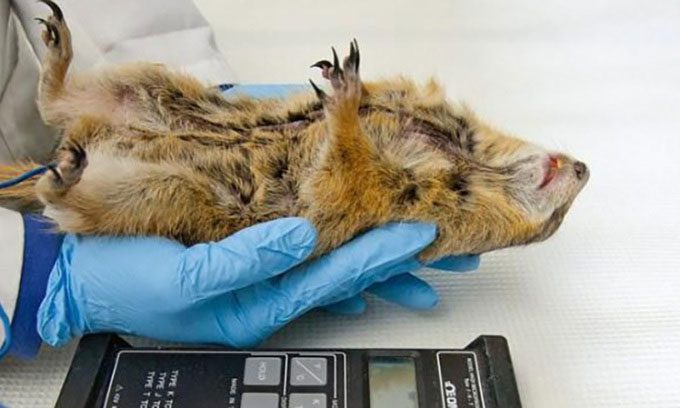Hibernation during long-term space missions could help astronauts maintain their health, reduce food, water, and air consumption. When sleeping in a space environment, astronauts experience a decreased heart rate and respiratory system activity, reducing the need to burn calories and the amount necessary to maintain health.
NASA is researching the hibernation state to develop methods that would allow astronauts to do so in the future. The agency has awarded a grant to Kelly Drew, a professor of chemistry and biochemistry at the University of Alaska, who has studied hibernating animals for over two decades. Drew is investigating the hibernation process of Arctic ground squirrels, Space reported on February 10.

Arctic ground squirrels in Professor Kelly Drew’s laboratory at the University of Alaska, Fairbanks. (Photo: Todd Paris/University of Alaska).
Hibernation is very different from regular sleep. During sleep, the brain remains actively engaged. However, during hibernation, brain activity slows down significantly. The body temperature of hibernating animals also decreases, in some cases approaching freezing point, cellular division halts, and the heart rate drops to as low as two beats per minute.
Upon waking, hibernating animals do not experience any significant side effects. However, the same cannot be said for individuals waking up after a long period of coma or being bedridden. These individuals, similar to astronauts in microgravity conditions, suffer from various side effects due to the lack of physical activity. These side effects include muscle atrophy, osteoporosis, and organ degeneration.
“The new study could support future missions, activating a medical hibernation state for long-term space missions, protecting astronauts from cabin fever, ionizing radiation, and many other issues. The research could also be beneficial in preventing muscle loss and osteoporosis in microgravity environments,” NASA stated.
In the future, instead of having astronauts sit for months in a small spacecraft traveling to Mars, consuming food, water, and air, and gradually weakening due to inactivity in microgravity, part of the crew could be placed in a hibernation state. Hibernating astronauts would not require food or water, consume less air, and would wake up with significantly improved bones and muscles compared to their awake counterparts.
Hibernation could also be useful in the medical field, helping protect patients from dangerous conditions such as heart attacks and strokes. “Patients experiencing strokes or heart attacks could be placed into a medical hibernation state to slow down their metabolism until they can be taken to a suitable hospital,” NASA reported.


















































